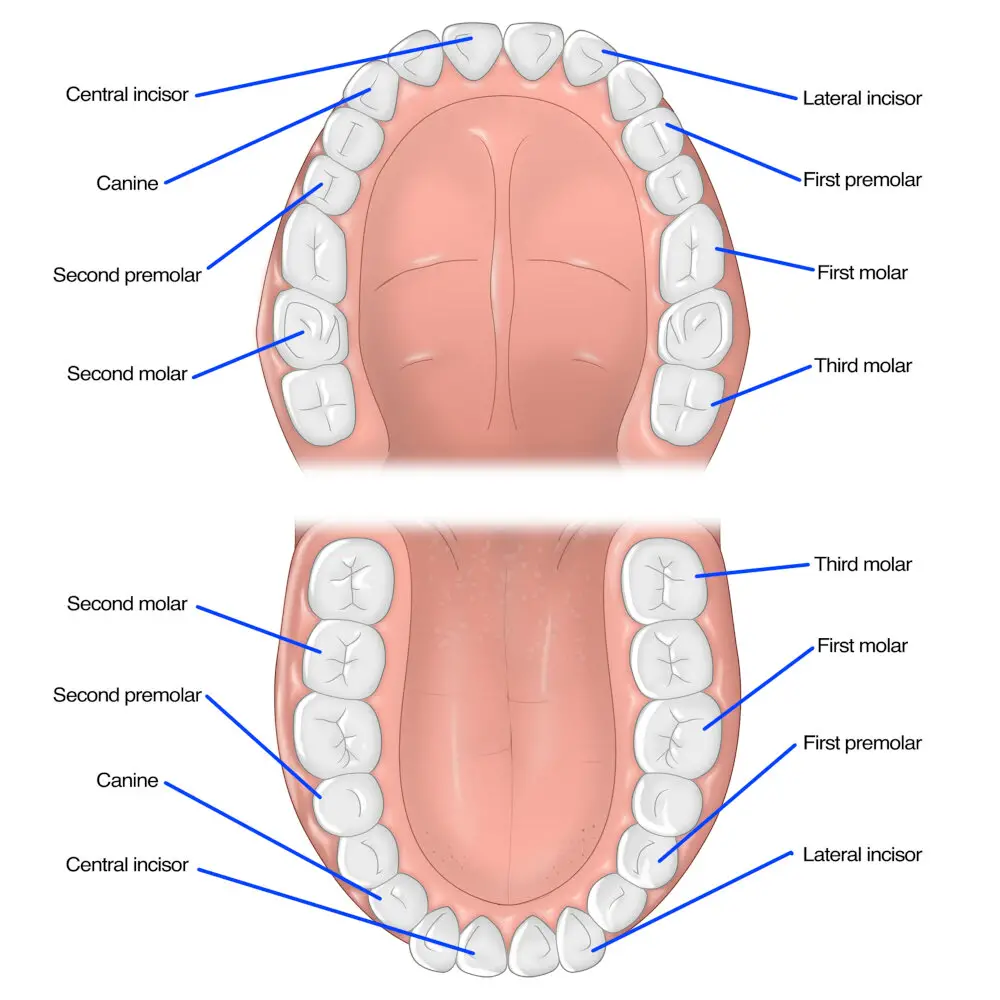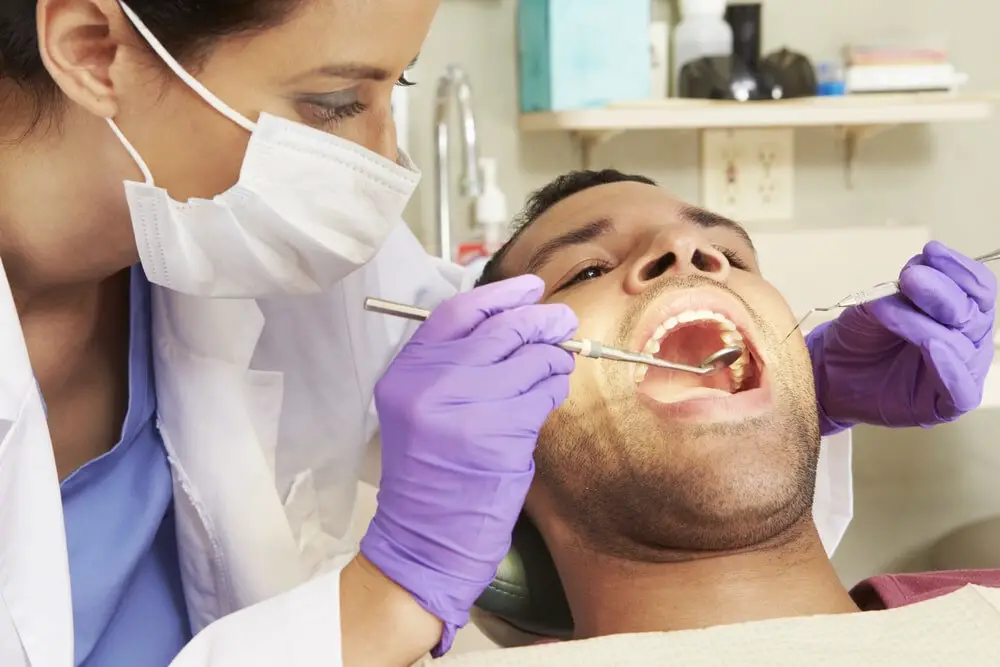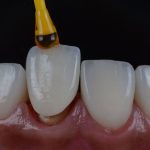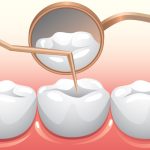Why Do My Teeth Hurt After the Dentist? Exploring the Causes and Solutions

Going to the dentist can be a daunting experience for many people, especially when they experience discomfort or pain after a dental procedure. Tooth pain after a dental visit is a common phenomenon, and there can be several causes behind it. Understanding the reasons for tooth pain after a dental visit can help you to take the necessary precautions and seek appropriate treatment to alleviate the discomfort and keep your oral health in check. Tooth pain after a dental visit can range from mild tenderness to severe pain, depending on the nature of the dental procedure and the individual’s pain tolerance. Some people may experience immediate discomfort after a dental procedure, while others may develop pain a few hours or days later. The causes of tooth pain after a dental visit can be multifactorial, and it’s crucial to identify the underlying cause and seek timely intervention to prevent any further complications. In this article, we will explore the common reasons for tooth pain after a dental visit and the solutions that can help you to manage the discomfort effectively.
The article titled \Why Do My Teeth Hurt After the Dentist Exploring the Causes and Solutions\ aims to provide a comprehensive understanding of the possible reasons why you may experience tooth pain after a dental check-up or treatment. The article delves into the various causes of tooth sensitivity, including nerve irritation, gum inflammation, tooth decay, and even teeth grinding. Furthermore, it offers a variety of solutions that can help alleviate the discomfort, such as using desensitizing toothpaste, taking over-the-counter pain relievers, and scheduling regular dental check-ups. Overall, this article aims to help readers better understand the causes of tooth pain after dental procedures and provide them with practical solutions to alleviate this discomfort.
Common Causes of Tooth Pain After a Dental Visit

After a dental visit, it is not uncommon to experience tooth pain or discomfort. This can be caused by a variety of factors, including the use of dental instruments or the application of dental treatments. Some of the most common causes of tooth pain after a dental visit include tooth sensitivity, gum irritation, and temporary nerve inflammation. Tooth sensitivity can occur when the dentin layer of the tooth is exposed, which can happen during a dental cleaning or other procedure. This can cause discomfort when exposed to hot or cold foods or beverages. Gum irritation can also occur during a dental cleaning or procedure, especially if the gums are inflamed or sensitive. This can cause pain and discomfort when eating or brushing the teeth. Temporary nerve inflammation can also occur after a dental procedure, which can cause pain or discomfort in the affected tooth. This typically resolves on its own within a few days to a week. Fortunately, there are several solutions to alleviate tooth pain after a dental visit. One of the most effective solutions is to take over-the-counter pain relievers, such as ibuprofen or acetaminophen. These can help reduce inflammation and alleviate pain. Using a desensitizing toothpaste or mouthwash can also help reduce tooth sensitivity. Additionally, applying a warm compress to the affected area can help reduce inflammation and alleviate pain. If the pain persists or becomes severe, it is important to contact your dentist as soon as possible. They may be able to provide additional treatment or recommend other solutions to help alleviate the pain and discomfort.
Tooth pain after a visit to the dentist is a common complaint that can be caused by sensitivity, inflammation, or nerve damage. Sensitivity occurs when the tooth’s enamel is worn down, exposing the dentin, leading to discomfort when hot or cold substances come in contact with the tooth. Inflammation can be caused by the dental procedures themselves, such as deep cleaning or fillings, or an infection within the tooth. Finally, nerve damage is a less common but more severe cause of tooth pain after a dental visit, which can occur due to a variety of reasons such as aggressive drilling or trauma to the tooth, leading to a throbbing, persistent pain that requires immediate attention. It is essential to communicate any discomfort to your dentist to ensure proper diagnosis and treatment.
One of the most common ways to alleviate pain after a dental visit is by using over-the-counter pain medication. Nonsteroidal anti-inflammatory drugs (NSAIDs) such as Ibuprofen, Naproxen, and Aspirin can help reduce pain and inflammation. Another effective solution is using a desensitizing toothpaste. This type of toothpaste contains compounds that block the nerve endings in the teeth, reducing sensitivity and pain. Additionally, it is recommended to avoid hot or cold foods and drinks, as well as hard or crunchy foods, until the pain subsides. Applying a cold compress to the affected area can also help reduce pain and swelling. If the pain persists or worsens, it is important to contact your dentist for further evaluation and treatment.
Specific Dental Procedures That Can Cause Pain

Dental procedures are essential for maintaining good oral hygiene and preventing the development of any dental issues. However, some of these procedures can cause pain and discomfort, leaving patients questioning their effectiveness. One of the most common dental procedures that can cause pain is tooth extraction. Although the extraction procedure is relatively straightforward, the process of removing the tooth from the gums can cause pain and discomfort. Patients may experience soreness, swelling, and sensitivity around the extraction site, which can persist for several days after the procedure. Dentists usually prescribe painkillers to alleviate the pain and recommend applying ice to the affected area to reduce swelling. Another dental procedure that can cause pain is root canal therapy. This procedure involves removing the infected pulp from the tooth and filling the resulting cavity with a dental filling. While this procedure is highly effective in preventing the spread of infection and saving the tooth, it can cause discomfort and pain. Patients may experience sensitivity to hot and cold temperatures, as well as soreness around the affected tooth. Dentists usually prescribe painkillers and recommend avoiding hard and crunchy foods for a few days after the procedure. It is essential to note that while root canal therapy can cause pain, it is a necessary procedure that can save your tooth and prevent further dental issues.
Dental procedures such as fillings, root canals, and extractions can cause tooth pain due to various reasons. Fillings can lead to sensitivity and discomfort if the filling material is not properly bonded to the tooth or if the filling is too high, causing an uneven bite. Root canals may cause discomfort due to inflammation and swelling of the surrounding tissues, or if the canal is not thoroughly cleaned and disinfected. Extractions can also result in pain and discomfort due to trauma to the surrounding tissues, nerve damage, or a dry socket. However, these procedures are necessary for maintaining good oral health and can be managed with proper aftercare and medication prescribed by the dentist.
Many dental procedures can cause pain because they involve manipulating or drilling into sensitive areas of the teeth, gums, or jawbone. This can result in inflammation, soreness, and discomfort that can persist for several days after the treatment. However, there are several ways to manage this pain, such as taking prescribed pain medications, avoiding hard or hot foods, and applying ice packs or warm compresses to the affected area. Additionally, practicing good oral hygiene, attending regular dental check-ups, and communicating openly with your dentist about any discomfort can help prevent and manage dental pain.
When to Seek Professional Help

It is not uncommon to experience some discomfort or sensitivity in your teeth after a dental visit. However, if the pain persists or becomes more severe, it may be a sign that you need to seek professional help. This could be an indication of a more serious issue, such as a cavity or infection. It is important to address these issues as soon as possible to prevent further damage or complications. If you are experiencing intense pain, swelling, or bleeding after a dental visit, it is important to seek immediate professional help. This could be a sign of an infection or other serious issue that requires immediate attention. Additionally, if you have a history of dental problems or have recently undergone extensive dental work, it is important to monitor any discomfort or pain you may experience and seek professional help if necessary. By being proactive and seeking professional help when needed, you can ensure that your dental health remains in top condition and prevent any long-term damage or complications.
Tooth pain after a dental visit is common, but it usually subsides within a few hours or days. However, in some cases, the pain may persist and require professional attention. If the pain persists for more than a few days, it could be a sign of a more significant issue, such as an infection or nerve damage. Additionally, if the pain is accompanied by other symptoms, such as swelling, fever, or difficulty chewing, it’s crucial to seek professional dental care immediately. Ignoring persistent tooth pain can exacerbate the underlying issue, leading to more severe dental problems that may require more invasive and expensive treatments. Therefore, it’s essential to address tooth pain promptly and seek professional attention to ensure optimal dental health.
If you’re experiencing tooth pain, a dentist may recommend several treatments depending on the cause of the discomfort. For instance, if the pain is due to a weakened, cracked, or severely decayed tooth, a dental crown may be the best solution. This treatment involves covering the tooth with a cap made of porcelain or metal, which can help restore strength, shape, and functionality. On the other hand, if the pain is caused by an infection in the tooth’s pulp, a root canal may be necessary. During this procedure, the dentist removes the damaged or infected pulp, cleans the root canal, and fills it with a special material to prevent further infection. Both treatments aim to alleviate tooth pain and preserve the natural tooth structure, but the choice of treatment will depend on the severity and underlying cause of your toothache.
Tips for Preventing Tooth Pain After a Dental Visit

Going to the dentist can be a daunting experience for some people, and the thought of experiencing tooth pain after a dental visit can make the experience even more unpleasant. However, tooth pain after a dental visit is not uncommon and can be caused by a variety of reasons. Fortunately, there are several tips that you can follow to prevent tooth pain after a dental visit. Firstly, it is essential to maintain good oral hygiene by brushing your teeth at least twice a day and flossing regularly. This helps to remove any food particles that may get stuck in your teeth and prevent the buildup of plaque and bacteria, which can lead to tooth decay and gum disease. Secondly, it is advisable to avoid hard and crunchy foods for a few days after your dental visit. Chewing hard foods can put pressure on your teeth and aggravate any soreness or sensitivity that you may experience after a dental procedure. Instead, opt for soft foods like soups, mashed potatoes, and smoothies, which are easier on your teeth and won’t cause additional discomfort. Additionally, it is crucial to follow any post-operative instructions given by your dentist, such as avoiding smoking, drinking alcohol, or using a straw. These activities can delay the healing process and increase the risk of infection, leading to further tooth pain and discomfort. By following these simple tips, you can help prevent tooth pain after a dental visit and ensure that your teeth remain healthy and pain-free.
After a visit to the dentist, it’s common to experience tooth pain, but there are several ways to reduce the risk. Practicing good oral hygiene such as brushing twice a day and flossing daily can help prevent any bacterial infections that can cause pain. Additionally, avoiding hard or sticky foods can prevent any damage or discomfort to the teeth and gums. It’s also important to stay hydrated and avoid consuming excessive amounts of sugary and acidic drinks which can erode the enamel and cause sensitivity. Overall, maintaining a healthy oral hygiene routine and being mindful of what you eat and drink can help reduce the risk of tooth pain after a visit to the dentist.
Following aftercare instructions provided by the dentist is crucial to ensure that your teeth and gums heal properly after any dental procedure. These instructions are tailored to your specific needs and will help alleviate any discomfort or pain you may experience. Neglecting aftercare instructions can lead to complications such as infections, bleeding, and even damage to the teeth or gums. By following the instructions, you can prevent any potential problems and help maintain the health of your teeth and gums. It is important to note that aftercare instructions can vary depending on the procedure, so it is essential to listen carefully to your dentist and ask any questions you may have to ensure that you are properly caring for your teeth and gums.
Tooth pain following a dental visit can occur due to various reasons, including tooth sensitivity, gum inflammation or infection, dental procedures such as fillings or extractions, and teeth grinding or clenching. The solutions to these issues may vary, with options such as using desensitizing toothpaste or mouthwash for sensitivity, applying ice packs and taking over-the-counter pain relievers for inflammation or infection, and using a mouth guard for teeth grinding. It is essential to communicate with your dentist about any discomfort or pain after a dental visit to determine the root cause and find the appropriate solution to alleviate the pain. Taking good care of your oral health by maintaining proper hygiene practices and regular dental checkups can also help prevent tooth pain in the future.
It’s important to remember that dental pain should not be ignored. If you experience discomfort after a dental appointment, it’s essential to seek professional help immediately. Dentists are trained to identify the cause of your pain and provide solutions that may prevent future discomfort. Additionally, taking preventive measures such as practicing good oral hygiene, avoiding hard foods or excessive sugar intake, and visiting the dentist regularly for check-ups can help prevent dental pain in the future. Remember, taking care of your teeth is essential for your overall health, and seeking professional help when needed can make all the difference in maintaining a healthy, pain-free smile.
Conclusion

In conclusion, the pain and discomfort experienced after a dental procedure can be caused by a number of factors, including inflammation, nerve damage, or infection. However, with proper care and treatment, these symptoms can be effectively managed and alleviated. It is important to communicate any concerns with your dentist and follow their instructions for post-procedure care. Maintaining good oral hygiene and attending regular dental check-ups can also help prevent future dental issues and reduce the likelihood of experiencing pain after a procedure. Remember, a healthy smile is worth the effort and investment in your dental health.







